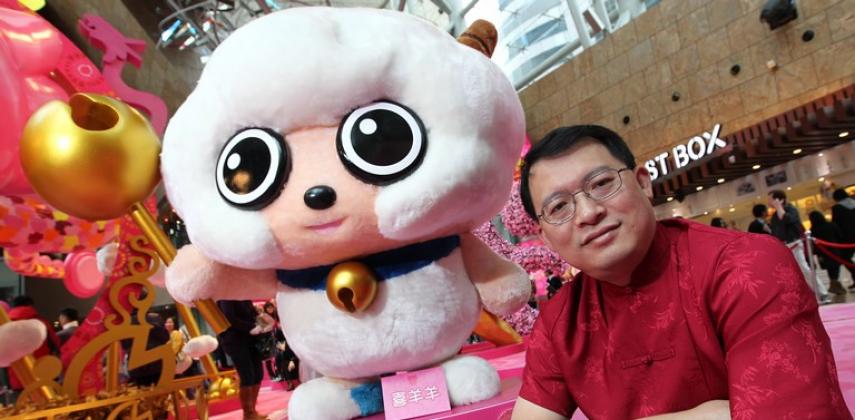Soh Szu-wei is usually the most feared and detested person in a meeting room, being the man who is brought in by the board of directors to reform an ailing company. In a way, Soh holds the power to retain or to lay off employees.
Having worked with – and saved – several large international companies during his career as a management consultant, Soh took his talent to the Toon Express Group in 2009.
As the executive director and CEO of Imagi International Holdings, a member of the Toon Express Group, he has played a huge role in promoting the Pleasant Goat and Big Big Wolf animation series to the world.
How did you start your career as a management consultant?
From the age of nine, when I picked up a copy of The Economist, I have been fascinated by economics.
My first job, after graduating with an economics degree from the University of Oregon, was with the Economic Development Board in Singapore, helping overseas companies to set up businesses there.
I was able gain insights into the operations of various industries during my six years on the board. These experiences proved to be precious for my career as a consultant.
I have worked in several industries throughout my career such as Big Four accounting firms, an international beverage giant, a tobacco company – and my current job is in animation.
How do you feel about your role as a management consultant?
At every company that I had worked for, nobody liked me. I meant trouble to most employees because I am hired to help companies brush up their management.
The companies that require my help are usually in trouble, and there is lots of emotion in the boardroom. Management knows what it has to do to save the company, but emotions often get the better of them. So I am hired to help them to make the hard but necessary decisions. I help companies fire the people that they don’t want to fire, and implement reform polices for the betterment of the organisation.
How have you made your current company stand out in the competitive animation market?
There are more than 6,000 animation companies on the mainland, and only 10 of them manage to break even. The others rely on government assistance. It is certainly not easy to make money in the animation industry.
The first step to success is to create an appealing animation, which the artists behind Pleasant Goat and Big Big Wolf have certainly done to good effect.
But having a famous character is only the beginning. The breakthrough that brings in profit is to develop products related to the character.
Success is built upon success. With a higher income, a company is able to employ higher quality talent to continue its success.
What are your plans for the Toon Express Group and Imagi?
This year, the Toon Express Group will launch a new movie, Happy Family, along with television series products and mobile apps. And to celebrate the Year of the Dragon, a new character series, Happy Simple Life, will be launched. We held an exhibition of the characters at the Langham Place mall in Mong Kok during the Chinese New Year.
People say that the world is “Made in China”, with a huge number of factories there manufacturing products for various brands. But there are very few international brands that hail from the mainland. I hope to make Pleasant Goat and Big Big Wolf one of the first international brands from China.
You have worked in various industries. How do you manage the diversity?
I like to move to a new industry every three to four years because I enjoy taking on new challenges. Skills in management and market sense are transferrable across different industries, but not industry knowledge itself. So before I make a move, I make it a point to learn about the industry.
Before I joined the Toon Express Group, I studied several animation books. I used to borrow textbooks from universities, but I now surf the internet.
What are your secrets to success as a manager?
Running a business is not a democracy. There must only be one decision-maker, and everyone has to move in the same direction.
A manager should never be office-bound. The reports by staff are not always trustworthy, so you have to go out and see things for yourself. If a manager is proactive in checking operational defects, it will get staff to act on their own to improve things.


